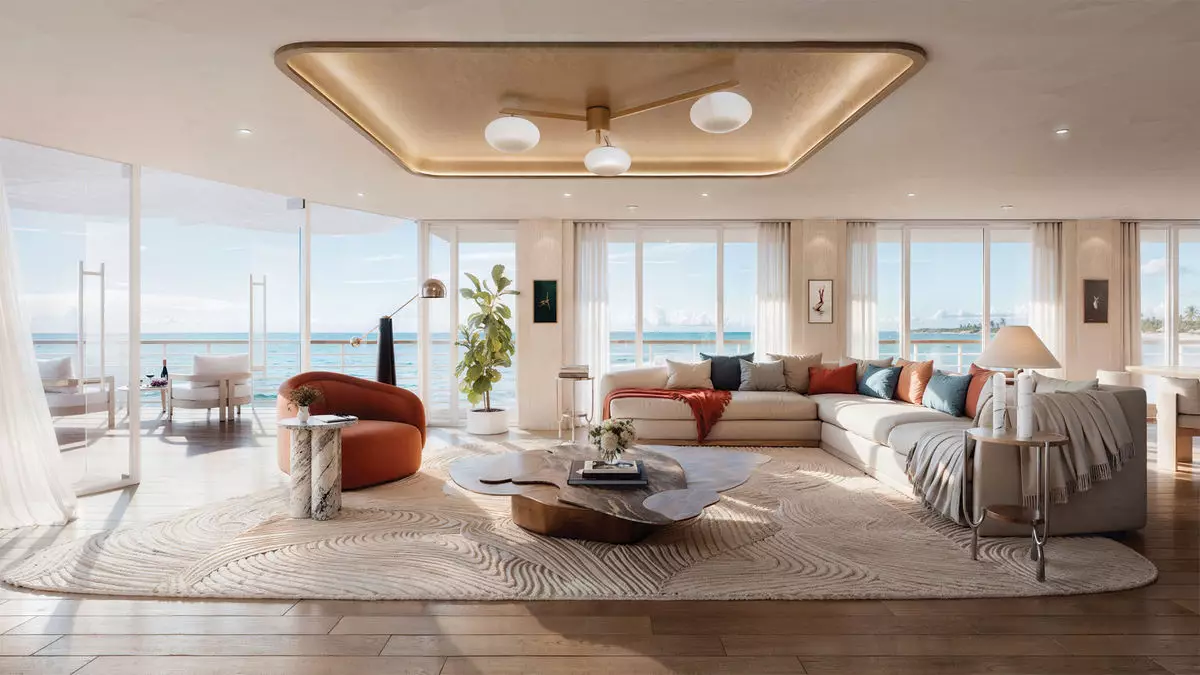The concept of residing at sea year-round is more than a whimsical fantasy; it’s slowly manifesting into a burgeoning reality, thanks to the emergence of residential cruise lines. Within the vast landscape of the cruise industry, this niche market is captivating the imaginations of affluent individuals who desire an unconventional lifestyle. With products promising cabin ownership and the allure of living aboard luxury ships, the industry signals a shift in traditional travel dynamics. However, while the notion of navigating the world’s oceans from the comfort of one’s home holds undeniable charm, substantial challenges loom beneath the surface.
Market Growth Amidst Skepticism
Despite the optimistic forecasts presented by founders in the residential cruising sector, cautious whispers abound among travel advisors who highlight significant hesitations. The recent track record of troubled launches and incomplete projects casts a long shadow over the sector’s sustainability. The promise of year-long world cruises is enticing; yet, with the failure of ventures like Life at Sea Cruises—abruptly canceling a voyage just days before launch—questions about reliability permeate the discourse. This skepticism is not unwarranted, as clients investing substantial sums, often ranging from hundreds of thousands to millions of dollars, deserve assurances that their dreams are not merely built on sand.
As the industry reroutes through unchartered waters, the appetite among consumers for residential cruises appears palpable. Companies like Crescent Seas are banking on this demand. Founded by seasoned players such as Russell Galbut, the line intends to carve its niche by safeguarding clients’ interests through robust sales structures involving travel agencies. By offering commissions for travel advisors facilitating property sales or short-term bookings, Crescent Seas attempts to align itself with traditional cruise operations, potentially paving the way for a more normalized acceptance of the residential cruise model.
The Allure of Luxury and Flexibility
The crux of residential cruising’s appeal is undeniably tied to the modern concepts of flexibility and luxury. In a world increasingly punctuated by remote work, the opportunity for individuals to blend their careers with a lifestyle of travel is highly attractive. Enhanced connectivity provided by high-speed internet onboard adds to this equation, allowing residents to maintain professional commitments while exploring exotic ports. As affluent lifestyles seek invigorating changes, the combination of comfort in the high seas with work-life balance is resonating deeply with potential clients.
Crescent Seas, as it gears up for its debut in December 2026, is strategically positioned to exploit this trend. Its promise of luxurious cabins—ranging from $750,000 to $8 million—reflects an understanding of the affluent consumer base eager to explore life at sea. Yet, this vibrant picture also comes coupled with reality. Ongoing refinements and refurbishments will be crucial in ensuring these vessels meet the high expectations of their residents. Past failures of projects have not gone unnoticed; thus, ensuring operational excellence will be key to appealing to potential investors.
Navigating a Sea of Opportunities
The growing interest in residential cruising is accentuated by a landscape of competitive offers. With models like Villa Vie, where customers can either purchase or rent cabins, an alternative approach enriches the consumer choices in this niche market. Additionally, projects like Storylines that are ambitiously developing custom-built ships further showcase the potential diversity in offerings aimed at the residential cruise sector.
Yet, the question remains: can these various iterations genuinely succeed where others have faltered? The need for an integrated approach encompassing rigorous operational strategies, effective marketing, and real-time responsiveness to market needs cannot be overstated. With significant financial stakes on both sides, stakeholders need to navigate this evolving marketplace carefully.
The Role of Travel Advisors in a Changing Landscape
In this emerging landscape, travel advisors play a pivotal role that transcends simple transactions. Their involvement can act as a bridge between potential residents and the operational realities of living at sea. As noted by industry professionals, forming robust alliances with these advisors will be central to the success of residential cruise projects. Trust and transparency will rebuild confidence in what may still be perceived as a high-risk investment.
However, can travel agents adapt quickly enough to meet the unique challenges posed by the residential cruise model? While opportunities exist, the requisite specialized knowledge could require significant time and effort for agents to acquire. The convergence of high-end travel with real estate demands not just expertise in selling experiences but also a profound understanding of property investment.
The future of residential cruising stands at a crossroad of promise and uncertainty. With the right strategies and a keen focus on operational integrity, the sector could redefine life at sea, offering affluent individuals an alluring blend of luxury and adventure. Yet, navigating this evolving landscape will necessitate vigilance and adaptation from all industry players involved.


Leave a Reply